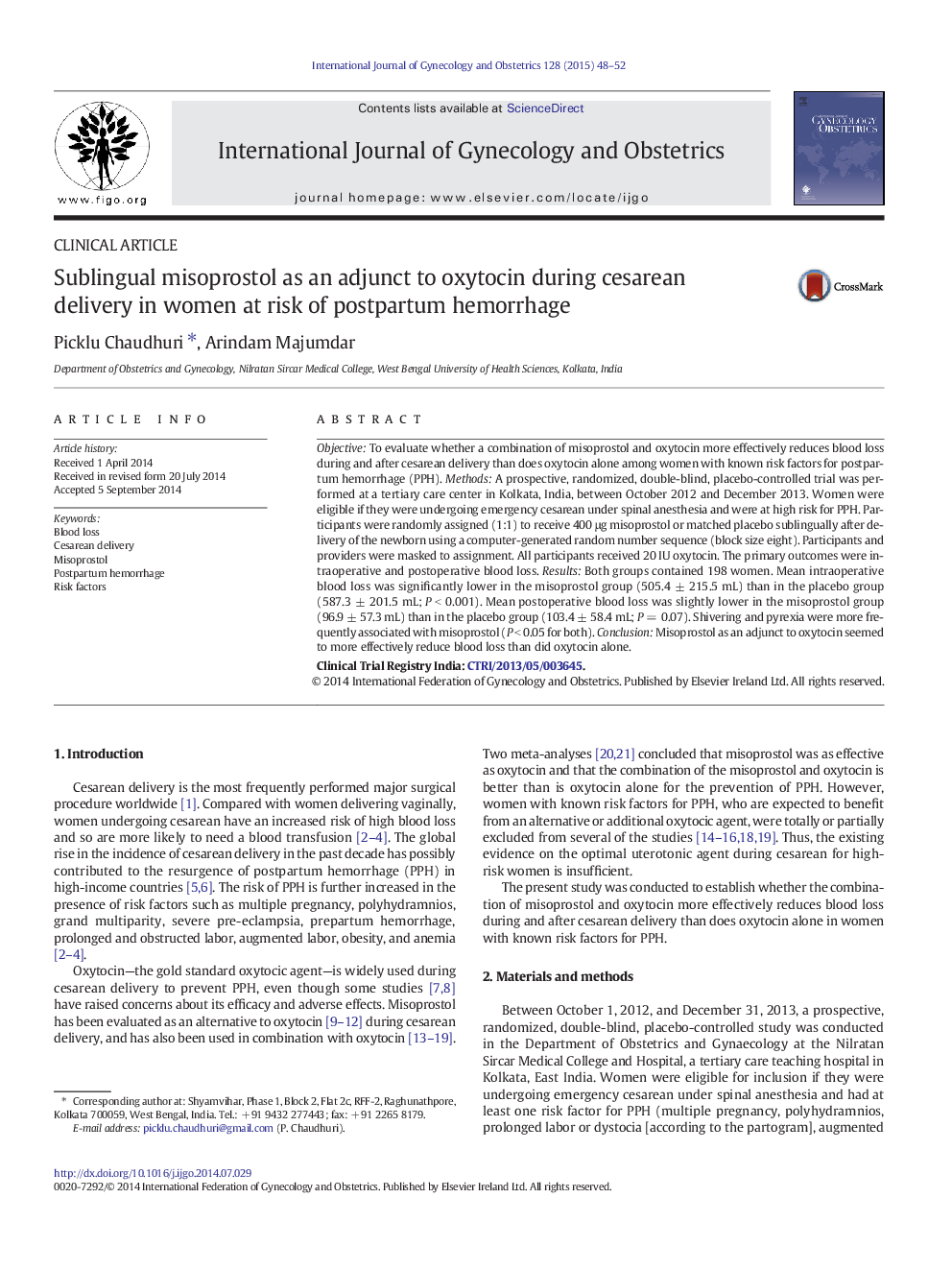| Article ID | Journal | Published Year | Pages | File Type |
|---|---|---|---|---|
| 3948551 | International Journal of Gynecology & Obstetrics | 2015 | 5 Pages |
ObjectiveTo evaluate whether a combination of misoprostol and oxytocin more effectively reduces blood loss during and after cesarean delivery than does oxytocin alone among women with known risk factors for postpartum hemorrhage (PPH).MethodsA prospective, randomized, double-blind, placebo-controlled trial was performed at a tertiary care center in Kolkata, India, between October 2012 and December 2013. Women were eligible if they were undergoing emergency cesarean under spinal anesthesia and were at high risk for PPH. Participants were randomly assigned (1:1) to receive 400 μg misoprostol or matched placebo sublingually after delivery of the newborn using a computer-generated random number sequence (block size eight). Participants and providers were masked to assignment. All participants received 20 IU oxytocin. The primary outcomes were intraoperative and postoperative blood loss.ResultsBoth groups contained 198 women. Mean intraoperative blood loss was significantly lower in the misoprostol group (505.4 ± 215.5 mL) than in the placebo group (587.3 ± 201.5 mL; P < 0.001). Mean postoperative blood loss was slightly lower in the misoprostol group (96.9 ± 57.3 mL) than in the placebo group (103.4 ± 58.4 mL; P = 0.07). Shivering and pyrexia were more frequently associated with misoprostol (P < 0.05 for both).ConclusionMisoprostol as an adjunct to oxytocin seemed to more effectively reduce blood loss than did oxytocin alone.Clinical Trial Registry India:CTRI/2013/05/003645.
